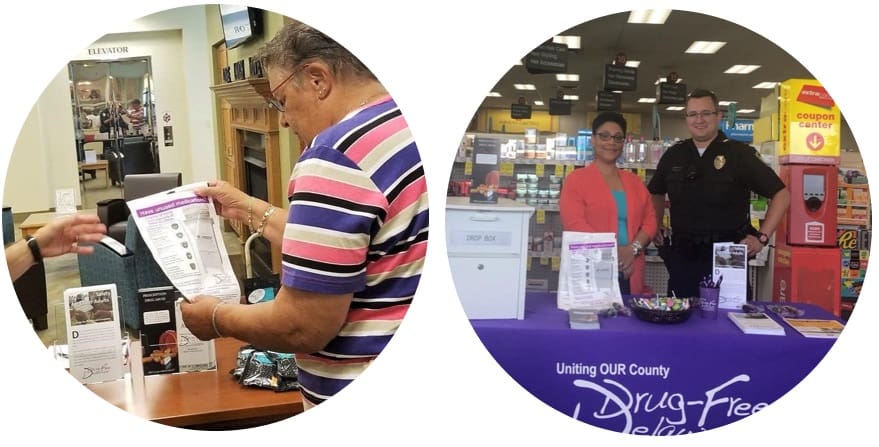
Tell me about your community and the communities that your coalition serves – its population and unique features. When was the coalition formed?
The Drug-Free Delaware Coalition is in Delaware County, Ohio, a suburban community of 443 square miles that adjoins Franklin County—home to the state’s capital of Columbus. Delaware County has a median household income of $90,499, however, 4.7% of county residents live below the poverty level. The southern part of the county around Polaris is a highway and a market for drug deals, particularly heroin distribution.
In response to the Surgeon General’s call to action to prevent and reduce underage drinking, county leaders convened a Town Hall meeting in 2005. 77 community residents including parents, judges, court personnel, law enforcement, youth, and other key government and agency stakeholders attended the meeting. On April 20, 2006, as a result of that Town Hall meeting, the Delaware County Underage Drinking Coalition was formed. In the same year the first Youth Risk Behavior Survey (YRBS) was conducted in county middle and high schools by the Delaware-Morrow Mental Health and Recovery Services Board. Data from the YRBS, focus groups with youth and adults, and a community assessment indicated the importance of focusing on reducing both youth alcohol use and prescription drug misuse and abuse. The coalition adopted its mission statement in September 2006. In 2007 the coalition wrote by-laws, changed the name to the Drug-Free Delaware Coalition, and constructed its logic model.
What unique issues is your coalition facing?
Drug-Free Delaware has two unique issues that it is currently facing. The first is that the coalition is in its 10th and final year of the DFC grant. “Our fiscal agent is actively working with our community partners in the health district, law enforcement and government agency to insure sustainability of the coalition beyond September 2019,” said coalition coordinator Jamica Harper. The second issue is the passing of HB 523 for the legalization of medical marijuana. The coalition is considering the addition of marijuana as a substance the coalition should address. Discussion and planning has begun to adjust the logic model to include the problem of underage use of marijuana in addition to underage drinking and misuse/abuse of prescription drugs.
What activity or program is your coalition most proud of and/or what activity would you like us to spotlight?
“Drug-Free Delaware is proud of our partnerships with local police and Sheriff departments that assist with prescription drug take-back events at local pharmacies, stores, and businesses,” said Harper. “The collection of prescription drugs during these events, in addition to those collected in our five prescription drug boxes, equals more than two tons since April, 2013. Just in the past year, we have distributed 1200+ prescription drug disposal bags to the community, provided 37 community residents with MedSafe lock boxes, distributed 200+ Deterra Drug Deactivation packets to Fire Departments, EMS, local physician offices, and pharmacies and during local community events. We collaborated with SourcePoint to deliver 1700+ Medication Safety for Older Adult Brochures and partner with our fiscal agent RPR and Sheriff department to coordinate ATOD based prevention programming in schools.”
The coalition has succeeded in affecting 119 community actions to create change and 134 community changes in policy, program, and practice, including 59 in overall AToD, 57 in the illegal use of prescription drugs, and 18 in underage drinking.
How did you get there, and what are your outcomes?
“The Drug-Free Delaware Coalition is very fortunate to have active community collaboration,” said Harper. “Together, our volunteers work very hard to promote the message of keeping our county’s youth free from the harms of drugs and alcohol. They constantly look for opportunities in the community for the coalition to highlight its message and provide valuable information and resources to the residents.”
What advice would you give to other coalitions that may be addressing some of the same issues?
“I believe that a coalition and its effectiveness is only as strong as the collaboration and unity of your partners,” said Harper. “Success comes when you make every effort to create opportunities that suite each sector so that you can increase volunteer’s comfortability when representing the coalition in the community.”
What do you hope to learn at CADCA’s National Leadership Forum this year?
“I am looking forward to learning more about sustainability and what to do now that our state has commercialized medical marijuana,” said Harper.


